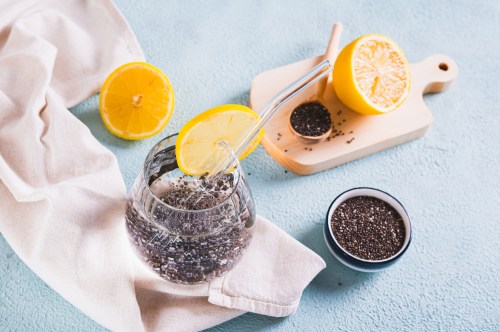Our editors independently select these products. Making a purchase through our links may earn Well+Good a commission
The wellness industry tends to overpromise and underdeliver, especially when it comes to supplements. I’ve worked long enough in the space to know that there’s no single magic pill that can cure, treat, or reverse whatever woes we’re seeking to remedy. Nonetheless, when an aesthetician recently told me that beef organ supplements changed the game for her hormonal acne and fatigue—my two biggest issues for years running—I obviously ordered them that very night. (*Insert grimace emoji here.*)
Investigating further on Reddit and retailer sites, I read a laundry list of claims: that these capsules could help to balance hormones, boost mood, support physical recovery, manage PMS and menopause, and then some. Nudged by the dueling skeptic and optimist within me and patiently waiting to gauge my own results, I had to ask experts if these claims were actually legit or too good to be true.
Why beef organs?
As much as I love a lean red meat, the likes of beef liver, heart, kidney, and fallopian tubes have never quite made it to my plate. But in terms of nutrition, animal organs (aka offal) go above and beyond the likes of skeletal muscle meat like your typical steak or batch of ground beef.
“Beef organ meat is one of the most nutrient-dense foods on the planet,” says Darshan Shah, MD, a board-certified physician in Los Angeles, California and founder and CEO of Next Health. “There's not only a lot of protein in it but also vitamin D, magnesium, omega-3s, and creatine,” he continues, the last of which is also a supplement du jour in fitness and biohacking circles.
According to Hannah Davis, RD, FNP, dietitian at Pivot Nutrition Coaching in Huntington Beach, California, beef organs are also abundant in micronutrients, including:
- Vitamin A, which is important for skin health and can also help with reducing hormonal acne
- Heme iron, which is vital for people who menstruate
- B vitamins, which help support energy levels and mood
- Zinc, which promotes both reproductive and skin health
- Trace minerals like copper and selenium, which support thyroid function and antioxidant defense
Are the claims of beef organ supplements legit?
While beef organ supplement brands tend to boast a variety of bold health claims, it turns out that many of them actually check out. Given their nutrient density and diversity, these supplements work well to support cognitive, metabolic, and muscular health, says Dr. Shah. They could also offer a lifeline if you need more pep in your step or help combating brain fog. “Zinc and iron play a role in reducing fatigue and promoting mental clarity,” says Davis. Vitamin B12, a micronutrient famed for supporting energy levels, is also a power player in the mix.
According to Gowri Rocco, MD, a double board-certified physician and founder and director of Optimum Wellness and Longevity in Corona, California, beef organ supplements may be uniquely beneficial for a range of women’s health issues, on top of reproductive issues.
Dealing with premenstrual syndrome (PMS) or premenstrual dysphoric disorder (PMDD)? She says that beef liver is rich in vitamin B6, which is crucial for neurotransmitter function (and thus can help with mood swings) and supports progesterone production (which can ease symptoms related to menstruation). Looking for a way to ease menopause symptoms? “Organ meats contain fat-soluble vitamins (A, D, E, K) and bioavailable minerals that support adrenal function, which is key when the ovaries slow down hormone production during menopause,” Dr. Rocco explains.
How about thyroid issues, which are five to eight times more likely to affect women than men and will impact an estimated 12 percent of people in the United States at some point in life? “Beef organs—especially thyroid and liver—provide iodine, selenium, and zinc, all of which are critical for thyroid function,” Dr. Rocco says.
There’s also the potential benefit of managing hormonal acne and improving skin health due to beef liver’s high vitamin A content, which has been shown to support skin cell turnover and reduce inflammation. (Hence why topical vitamin A derivatives like tretinoin and retinol are beloved by derms and skincare savants the world over.)
So, what can beef organ supplements *not* do?
Dr. Rocco is careful to add a few caveats. For example, any purported detoxification benefits are null since the liver and kidneys can adequately handle detox when we support them with a healthy diet and lifestyle. Beef organ supplements also aren’t a miracle cure for acne since it’s multifactorial and influenced by everything from diet and stress to gut health and hormones.
She also adds that they’re not a valid “dupe” for hormone therapy for those who need it, including women throughout their menopause journey. And as far as low thyroid issues go, supplementing can help, “but if you’re already on thyroid medications, adding them without testing could throw off your levels,” she warns.
Are supplements as good as the whole organs themselves?
While it’s typically ideal to get the bulk of your nutrients from whole foods, the experts give a hall pass on this one. Organs aren’t palatable to many people, can be tough to source, and I’ve personally never been offered a smorgasbord of beef liver, heart, kidneys, and uterus to dine on. (To any biohackers who feast on them regularly: Feel free to slip into my DMs with a dinner invite.)
“A good beef organ supplement could kill multiple birds with one stone by using this specific type of supplement,” says Dr. Shah. Dr. Rocco agrees, yet suggests eating whole organs if and when possible. “Beef organ supplements are better than nothing, but they don’t provide the same enzymes and cofactors as the real food,” she says.
For example, any purported detoxification benefits are null since the liver and kidneys can adequately handle detox when we support them with a healthy diet and lifestyle.
Safety considerations
It’s important to remember that supplements aren’t regulated by the Food and Drug Administration (FDA), and it’s essential to vet your options wisely. Dr. Rocco advises prioritizing grass-fed, freeze-dried beef organ supplements that don’t contain extra fillers. (I’ve been taking Primal Queen, which is grass-fed, free of major allergens, and formulated specifically for women’s health.) She also advises taking caution when supplementing to mitigate potential risks.
“Since the liver is so rich in vitamin A, taking too much can lead to toxicity,” Dr. Rocco warns. Given the high iron content of organ meats, those with iron overload conditions like hemochromatosis should also be cautious. “Also, if you have autoimmune issues, introducing organ meats slowly is a good idea since some people react to glandular extracts,” she adds.
Also important: To date, clinical research investigating the safety and efficacy of beef organ supplements is limited. So as is the case before modifying your supplement routine, it’s wise to consult your physician—especially if you’re dealing with health conditions or taking medications.
So, are beef organ supplements worth it?
Organ meats may have been a necessary form of sustenance to help our ancestors survive, but these days, beef organ supplements seem to be in their prime. Better yet, all three experts say that many of the purported claims actually check out to support (read: support, not cure) a range of health and wellness concerns—a relative rarity in the supplement space.
“I think beef organ supplements can be beneficial, especially for people who aren’t eating organ meats regularly,” says Dr. Rocco. “They provide a concentrated source of key nutrients that many people lack.” Still, she emphasizes that they should complement a well-rounded approach to wellness rather than serving as a standalone treatment.
As for my own experimentation? I’m about six weeks in and *might* notice a slight reduction in hormonal breakouts and a bit less daytime fatigue. (My new prescription retinoid could be behind the former, and hitting the gym more regularly could be fueling the latter.) That said, I’ll continue taking these supplements regularly—not in the hope of achieving any miracles, but rather knowing that overall consistency and a team effort of lifestyle choices provides the best shot to reach my goals.
Sign Up for Our Daily Newsletter
Get all the latest in wellness, trends, food, fitness, beauty, and more delivered right to your inbox.
Got it, you've been added to our email list.








